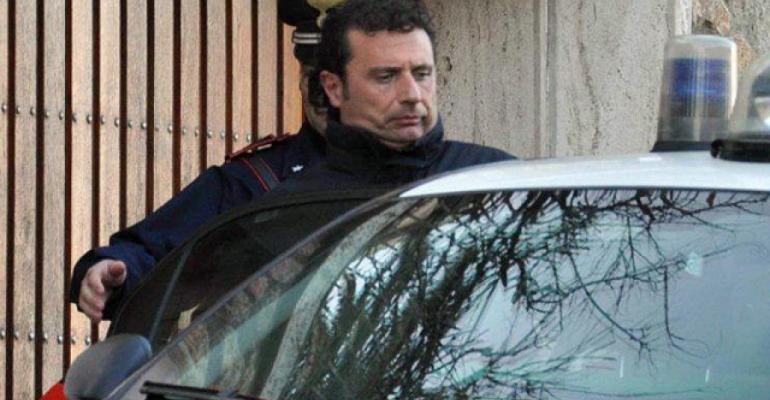Schettino, who is under investigation for manslaughter, shipwreck and abandoning his ship before passengers and crew had been evacuated, said he felt it his ‘moral duty to the public’ to explain his version of the events of that fateful night, which saw the loss of 32 passengers and crew after the ship hit the rocks off Giglio.
He expressed condolences for those who died, breaking down when asked about the youngest, a 5-year-old girl, and those they had left behind. But he also insisted that he, too, had been a victim, adding that ‘for a commander the loss of a ship is something … it is impossible to measure the pain.’ He apologised, not for any personal failing but as ‘a representative of this system’ that also includes the vessel and the company.
As for the events of that night, Schettino said he had ordered the ship to take a route running half a mile from shore, which he believed ‘an acceptable distance to salute’ the island. He confessed to being distracted by a phone call, during which time the ship drew too close to the rocks, but denied that he had organised the salute to impress a young woman on board.
Schettino also insisted he had not been at the helm at the time of the collision, suggested that the proximity to the rocks should have been spotted on the radar, and spoke vaguely of a ‘banal accident’ in which deaths were caused by a communications breakdown. He added: ‘It was as if all the heads on board, as well as the instruments, had blacked out.’
He added that he did not regret the 45 minutes it took him to sound the general alarm. Indeed, he claimed that he had saved lives by bringing the ship closer to shore, since stopping to lower the lifeboats would have left it vulnerable to a catastrophic sinking in 100mtr of water. ‘I don’t know how many victims there would have been if we had turned over there, but certainly reaching shallower waters meant fewer victims.’
As for his conversations with Costa’s command centre shortly after the collision, Schettino replied ‘absolutely not’ to the question of whether they instructed him to slow down the process of sounding the alarm and abandoning ship.
He spoke scathingly of the ‘entertainment’ that had been created out of the night’s events, not least with respect to the allegations that he had abandoned his ship prematurely. He said that with the deck slippery and the vessel at an incline of 50-55 degrees he was almost forced into the lifeboat. ‘I don’t know if I slipped or if I fell, or if the ship moved,’ he said. He described the story of the captain ‘just walking along and tripping into a lifeboat’ as ‘simply maliciousness.’
As for the demand of Coast Guard captain De Falco, broadcast around the world, that he return from the lifeboat to his ship, Schettino claimed that he was asking the impossible given the listing of the vessel, which would have required him to swim 300mtr to the other side, a move complicated by the need to keep his mobile phone dry so as to provide directions to the rescue units.
Questioned whether, having made it to the rocky shore before many passengers and crew, he had been tempted like some of his officers to dive into the water to help struggling passengers, he said that while he saw five or six people making their way towards the rocks, he saw none who were drowning.
Copyright © 2024. All rights reserved. Seatrade, a trading name of Informa Markets (UK) Limited.
Add Seatrade Cruise News to your Google News feed.  |

